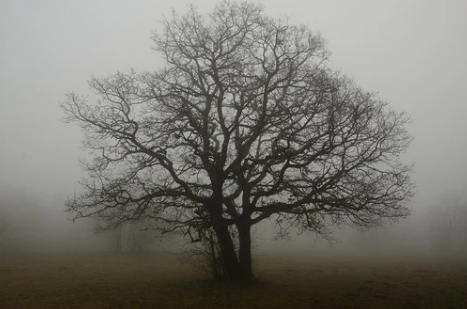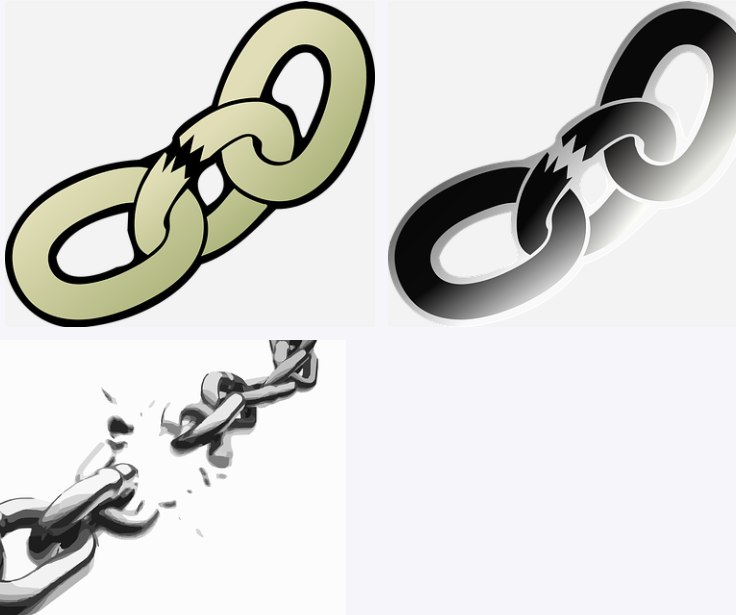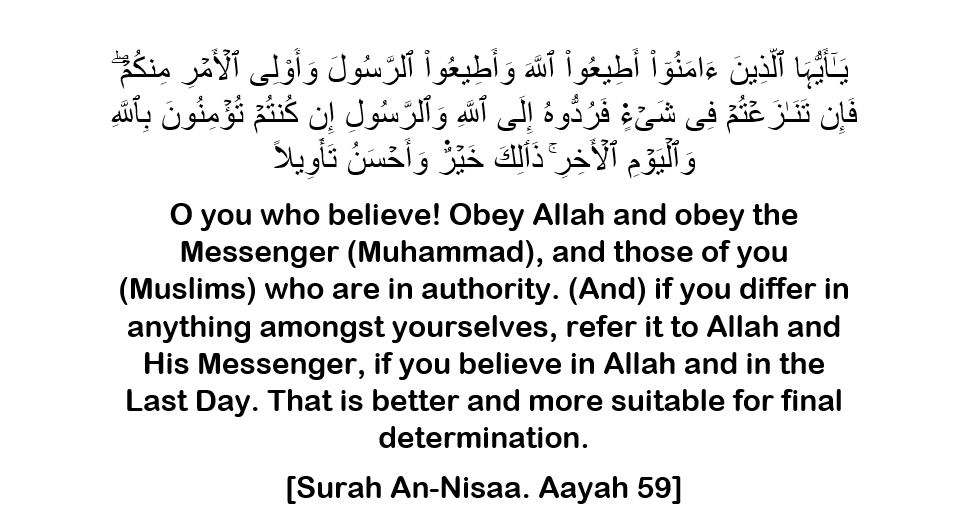Ahlul Hadeeth Hate Ahlul Bidah – Those Who Innovate Into The Religion
In The Name of Allaah, The Most Merciful, The Bestower of Mercy.
Shaikh Rabee Bin Haadi [may Allaah preserve him] quoted Imaam As-Saabooni [rahimahullaah] who stated:
And they [i.e. Ahlul Hadeeth] hated Ahlul-Bid’ah – those who initiated into the religion what is not from it. They neither loved them nor keep company with them. They neither listened to their speech nor sit with them. They neither argued with them about the religion nor debated with them’’. Then Shaikh Rabee said: How is this [the case]? Is this [view introduced] from themselves or guidance from Allaah and His Messenger, and that which the Salafus Saaleh were upon? Allaah [Glorified and Exalted be He] warned against Ahlul Bidah and clarified for us that they are people of desires, and that they follow Mutashaabihaat [i.e. texts that are not entirely clear in what they indicate, so they are referred back to other texts to be explained] and they abandon the Muhkamaat [i.e. texts that are very clear]. Aa’isha [radiyallaahu-anhaa] said: The Messenger [sallal-laahu-alayhi-wasallam] recited this ayah:
هُوَ الَّذِي أَنزَلَ عَلَيْكَ الْكِتَابَ مِنْهُ آيَاتٌ مُّحْكَمَاتٌ هُنَّ أُمُّ الْكِتَابِ وَأُخَرُ مُتَشَابِهَاتٌ ۖ فَأَمَّا الَّذِينَ فِي قُلُوبِهِمْ زَيْغٌ فَيَتَّبِعُونَ مَا تَشَابَهَ مِنْهُ ابْتِغَاءَ الْفِتْنَةِ وَابْتِغَاءَ تَأْوِيلِهِ ۗ وَمَا يَعْلَمُ تَأْوِيلَهُ إِلَّا اللَّهُ ۗ وَالرَّاسِخُونَ فِي الْعِلْمِ يَقُولُونَ آمَنَّا بِهِ كُلٌّ مِّنْ عِندِ رَبِّنَا ۗ وَمَا يَذَّكَّرُ إِلَّا أُولُو الْأَلْبَابِ
It is He Who has sent down to you [Muhammad] the Book [this Qur’an]. In it are Verses that are (entirely clear, they are the foundations of the Book [and those are the Verses of Al-Ahkaam (commandments, etc.), Al-Faraa’id (obligatory duties) and Al-Hudood (legal laws for the punishment of thieves, adulterers, etc.)]; and others are Mutashaabihaat (i.e. not entirely clear in what they indicate, so they are to be referred back to the Muhkamaat to be explained]. So, as for those in whose hearts there is a deviation (from the truth) they follow that which is not entirely clear thereof, seeking Al-Fitnah (polytheism and trials, etc.), and seeking for its hidden meanings, but none knows its hidden meanings except Allaah. And those who are firmly grounded in knowledge say: ‘’We believe in it; the whole of it (clear and unclear Verses) are from our Lord.” And none receive admonition except men of understanding.’’ [Surah Aal Imraan. Aayah 7] [Then] she [i.e. Aa’isha] said: The Messenger [sallal-laahu-alayhi-wasallam] said, ‘’If you see those who follow thereof that is not entirely clear, then they are those whom Allah has named [as having deviation (from the truth)] so beware of them’’. [Bukhaari Number 4547]
Allaah clarified that they [i.e. ahlul bidah] have desires [i.e. evil desires] and deviation with them, and that they intend to misguide themselves and other people! They desire trials and intend to misguide the people, and that is why the Messenger [sallal-laahu-alayhi-wasallam] mentioned them and described their condition to us. He [sallal-laahu-alayhi-wasallam] said, ‘’And indeed there will appear a people out of my Ummah in whom desires will run through them just as rabies runs through a dog.’’
Ahlul Sunnah – no doubt – hate Ahlul bidah and Imaam [As Saabooni] mentioned a number of them [i.e. senior scholars of ahlul hadeeth] that they are all agreed upon hating [Ahlul bidah]. However, amongst them [i.e Ahlul bidah] there are du’aat [callers to their bidah]- they are neither to be sat with nor debated with, except in cases of necessity and for a Maslahah [i.e. a carefully assessed benefit identified by rightly guided scholars amongst the scholars]; [otherwise], it is not permissible to enter into debate with them. It is not permissible to enter into a specific debate with the rawaafid if you are weak [i.e. in knowledge and character], except if one is a man who is firmly grounded in knowledge and religion, [very proficient in] establishing evidences, clever and a possessor of [that force and strength that enables him to easily excel in debate with the clear proofs without being affected by doubts]; so if he sees a benefit in debating them, he debates them. [Allaah (The Most High) said]:
[وَجَادِلْهُم بِالَّتِي هِيَ أَحْسَنُ – and argue with them in a way that is better]. This is the legislated debate. Allaah did not close the door of debate completely, so if we have a way of establishing the proofs and to guide the people to good, we follow it. The one who is debated with may not benefit but others may benefit.
As for the weak one, then no [i.e. he does not engage in debate]. Even amongst the scholars there is one who is weak and one who is led to be mistaken by Shub’hah [i.e. a statement or affair that resembles the truth but is falsehood in reality]. He may be a scholar but his character is weak, so he becomes weak in the presence of Ahlul bidah, even if they are younger than him and lesser in knowledge! Indeed, it has happened to many of those who ascribe to the Sunnah and Hadeeth [ i.e. fell into some deviation or error] due to their weakness and opposition to the methodology of the Salaf. For example: Al Bayhaqqi was from the seniors of Ahlul hadeeth and their scholars, and was deceived by some of the Ashaa’irah such as Ibn Fawrak and his ilk, so he fell into Ash’ariyyah! How many among the youth- in this era – have been ruined at the hands of Ahlul bidah?! How many youth, middle age men and graduates from universities have been deceived by Ahlul bidah, and thus they fall into their arms?! They are deceived by the parties [of illegal partisanship] and thus fall into their arms! Why is this? Because they did not act upon the statement of the Messenger: “If you see those who follow thereof that is not entirely clear, then they are those whom Allah has named [as having deviation (from the truth)] so beware of them”. The strong one calls Ahlul bidah; he calls the Christians. There has to be dawah in the path of Allaah and there has to be strong scholars who disseminate the religion of Allaah; and when necessary, they debate so that the proofs are established and benefit one who is to benefit.
[Source: An Excerpt from ‘Sharh Aqeedah As-Salaf Ashaab Al-Hadeeth’ pages 301-304′. slightly paraphrased]






